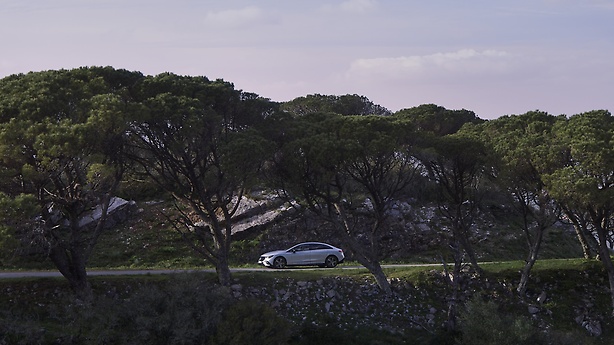Mercedes-Benz is working with its partners on the goal to decarbonise the aluminium supply chain. In December 2022, the vehicle manufacturer brand with the three-pointed star and the Norwegian aluminium manufacturer Hydro signed a letter of intent (LoI) for a low-carbon technology roadmap between 2023 and 2030. This is a key milestone towards decarbonisation, a green aluminium supply chain and thus reducing the CO₂ footprint in our products.
Already today, Hydro already supplies Mercedes-Benz with CO₂-reduced aluminium that comes from electrolysis powered by renewables. Since 2023, Hydro has been supplyin even more CO₂-reduced aluminium to the foundry at the Mercedes-Benz plant Untertürkheim (Mettingen section): With a minimum of 25 percent post-consumer recyclate, the carbon footprint can be reduced by nearly 70 percent compared to the European average.
In Mettingen, the more sustainable material has been used since 2023 in sophisticated structural components for body-in-white applications: Among other parts, the aluminium from Hydro is going to be used for safety and crash-relevant components, such as the shock towers for the models EQS, EQE, S-Class, E-Class, GLC and C-Class. Furthermore, the EQE will be equipped with longitudinal members made of low CO₂ aluminium. Mercedes-Benz also plans to use the material for various other parts such as the support frame for the electric powertrain of the upcoming vehicle platform MMA (Mercedes Modular Architecture).
,xPosition=0,yPosition=0.5)
,xPosition=0,yPosition=0)
,xPosition=0.5,yPosition=0)
,xPosition=1.0,yPosition=0)